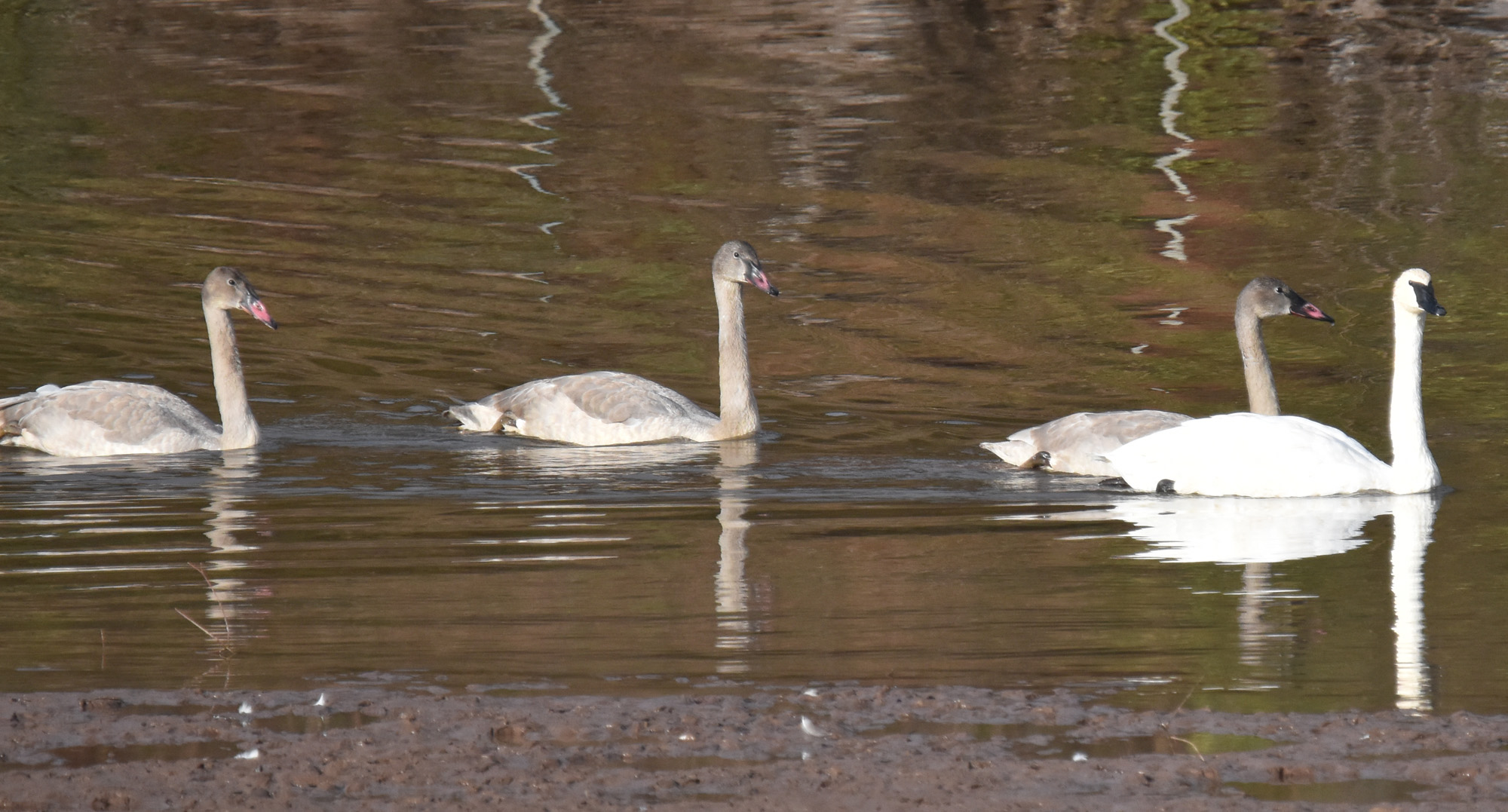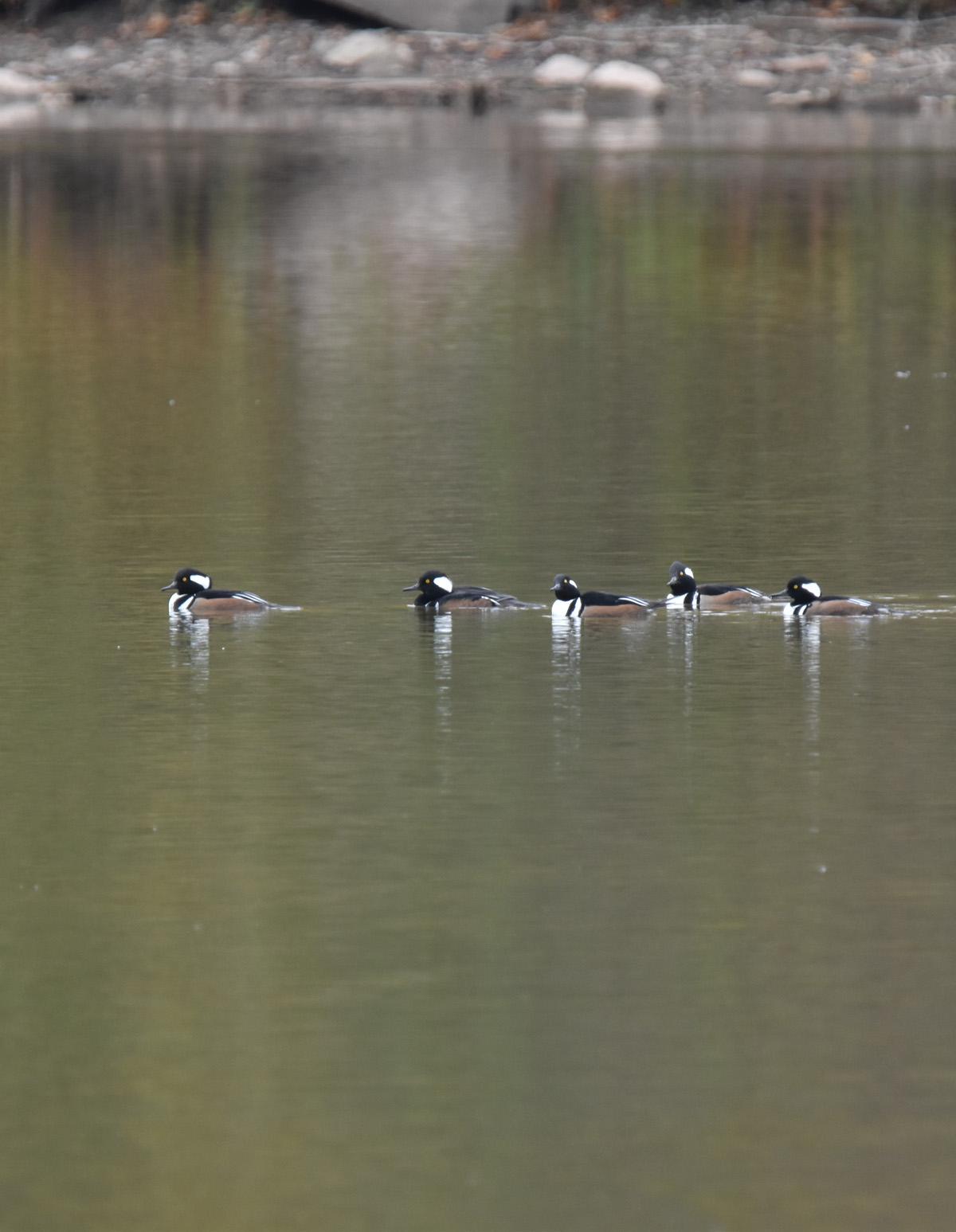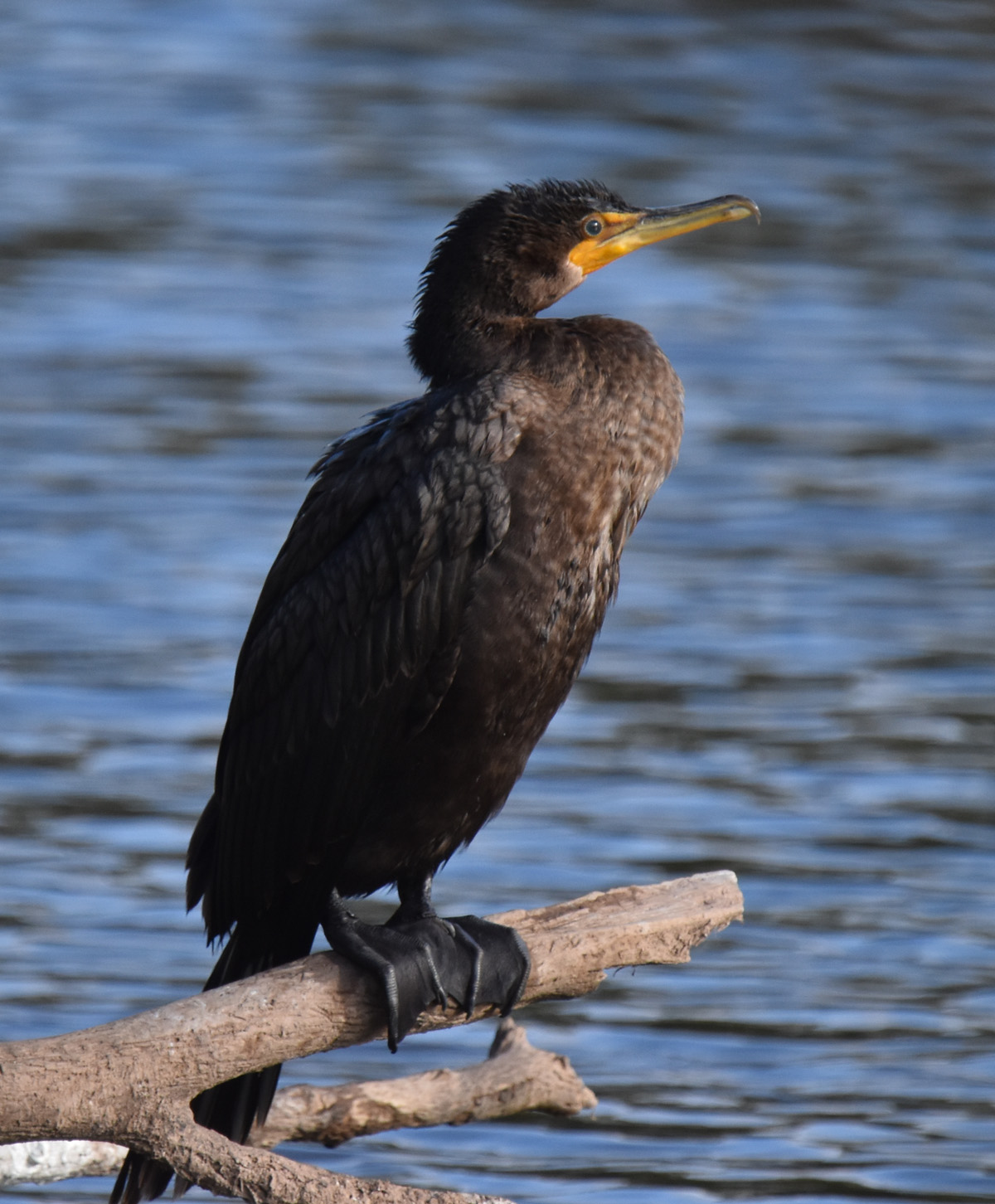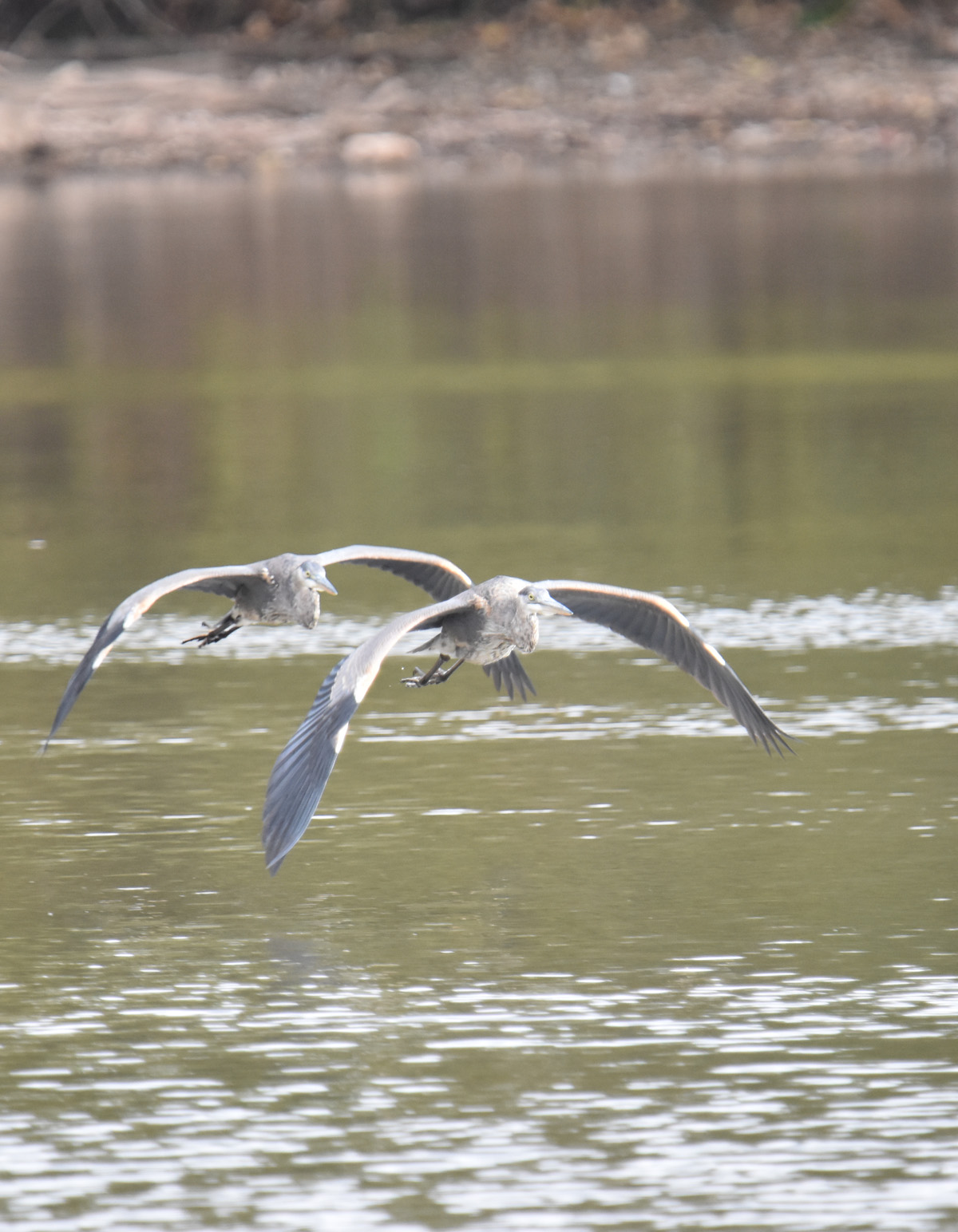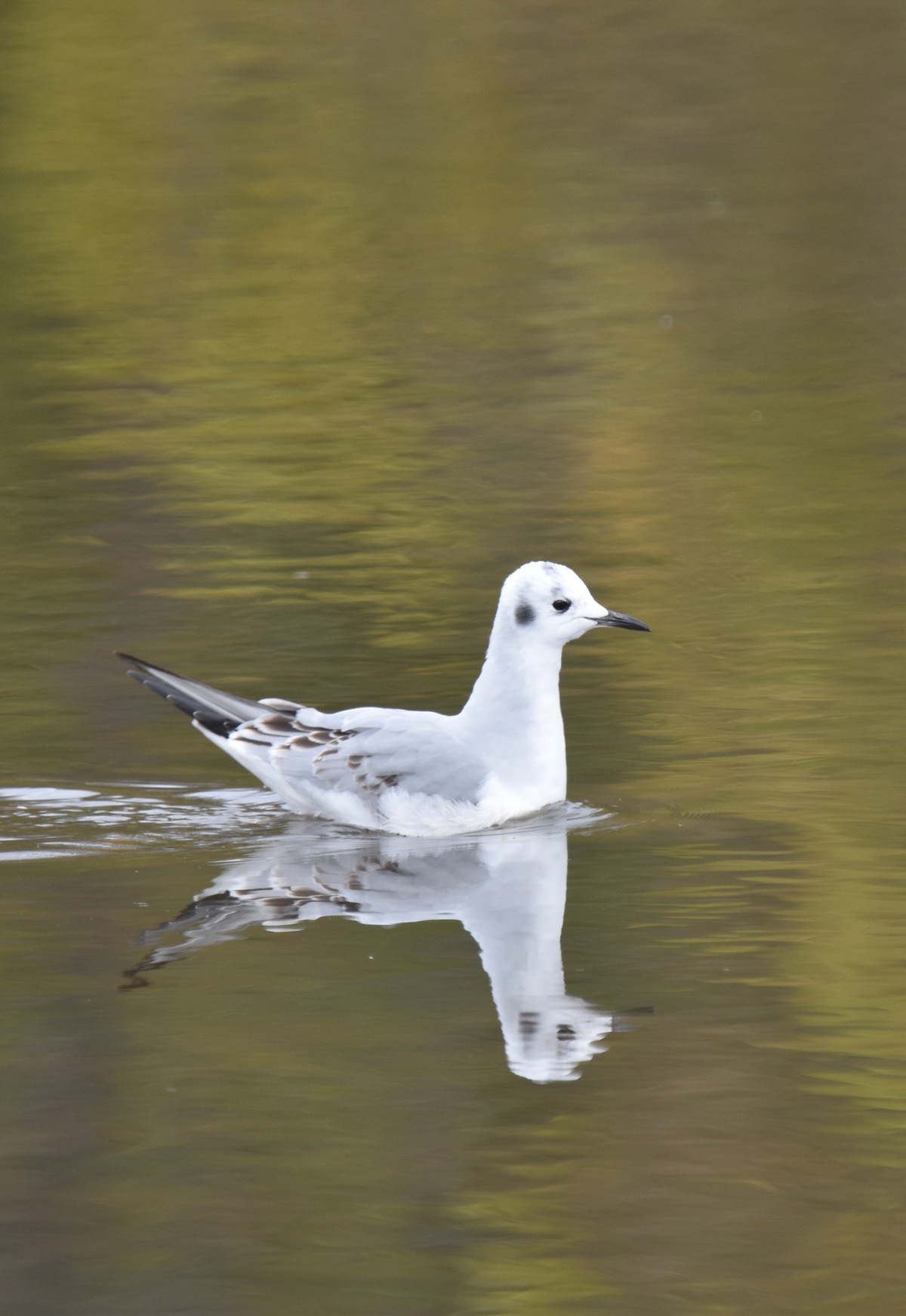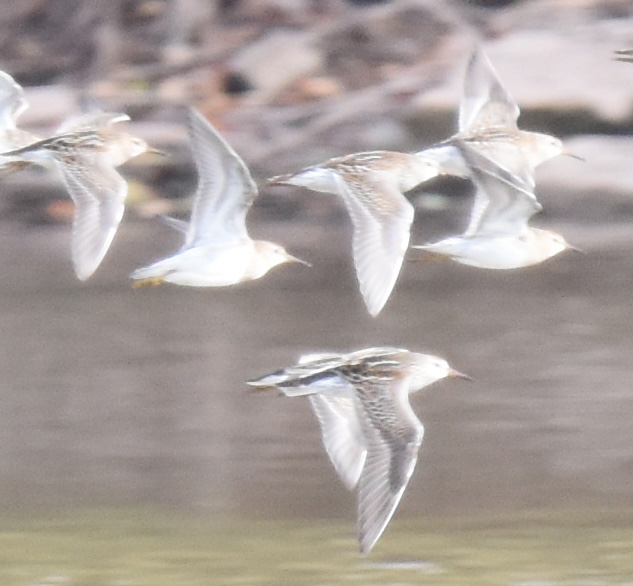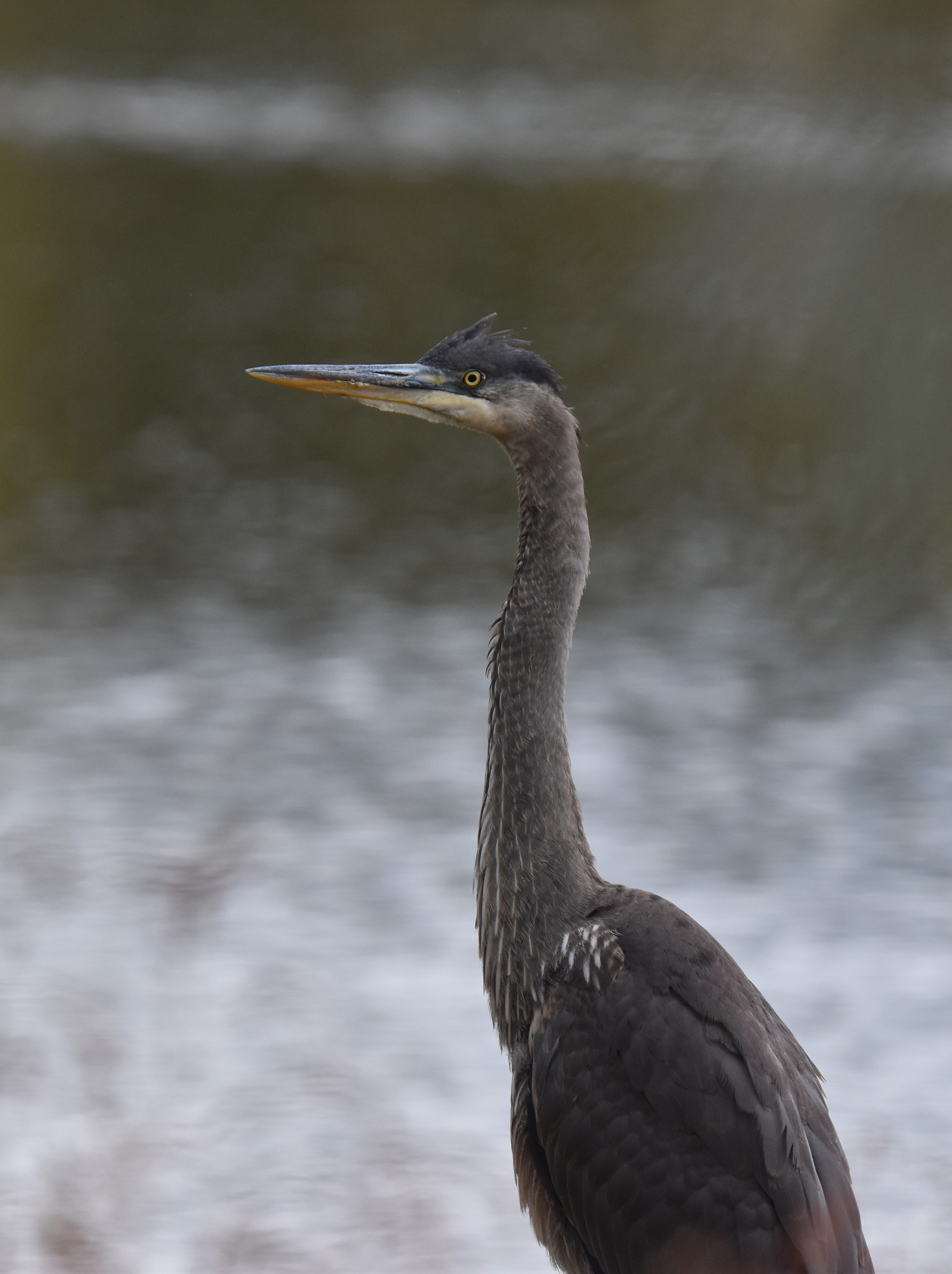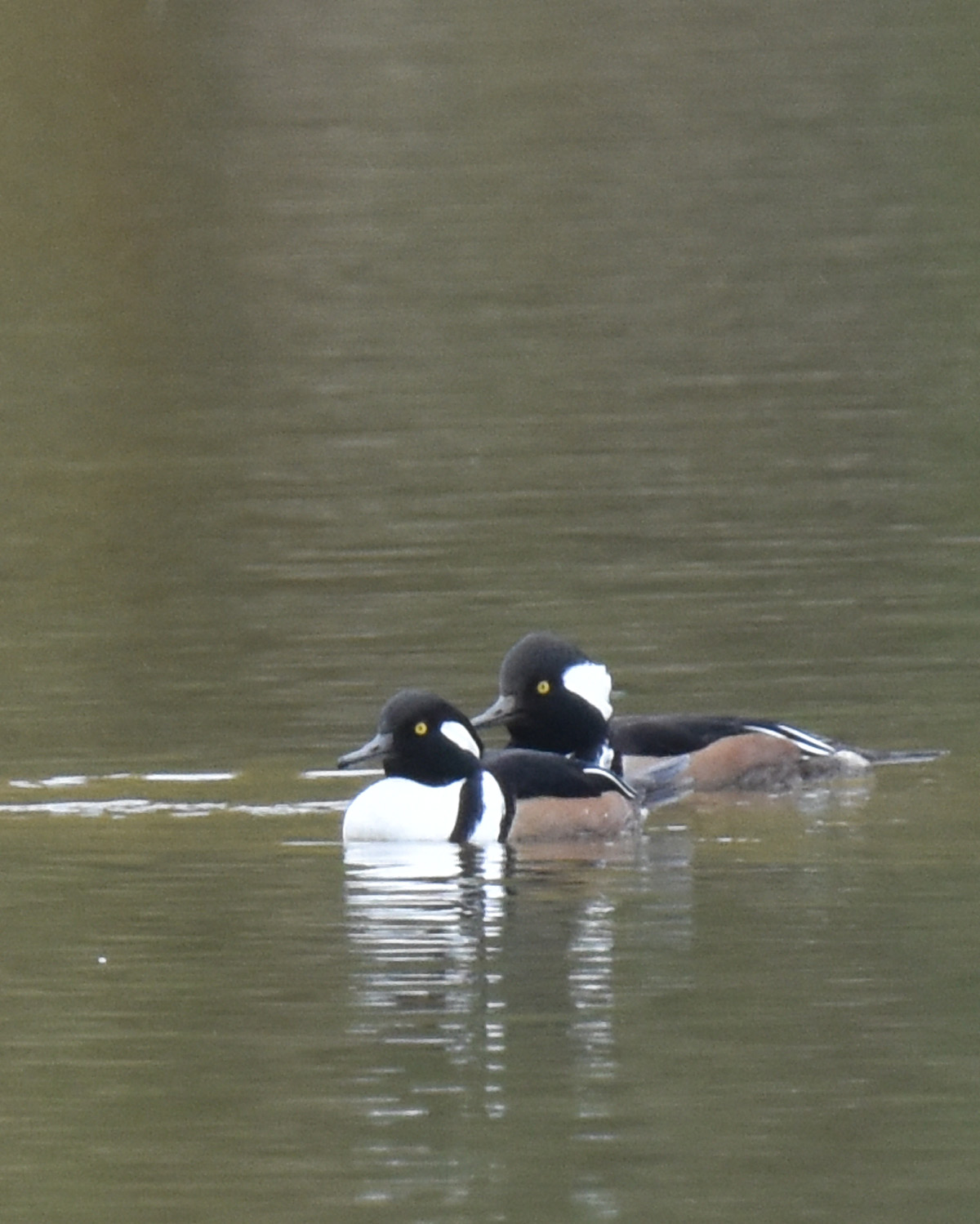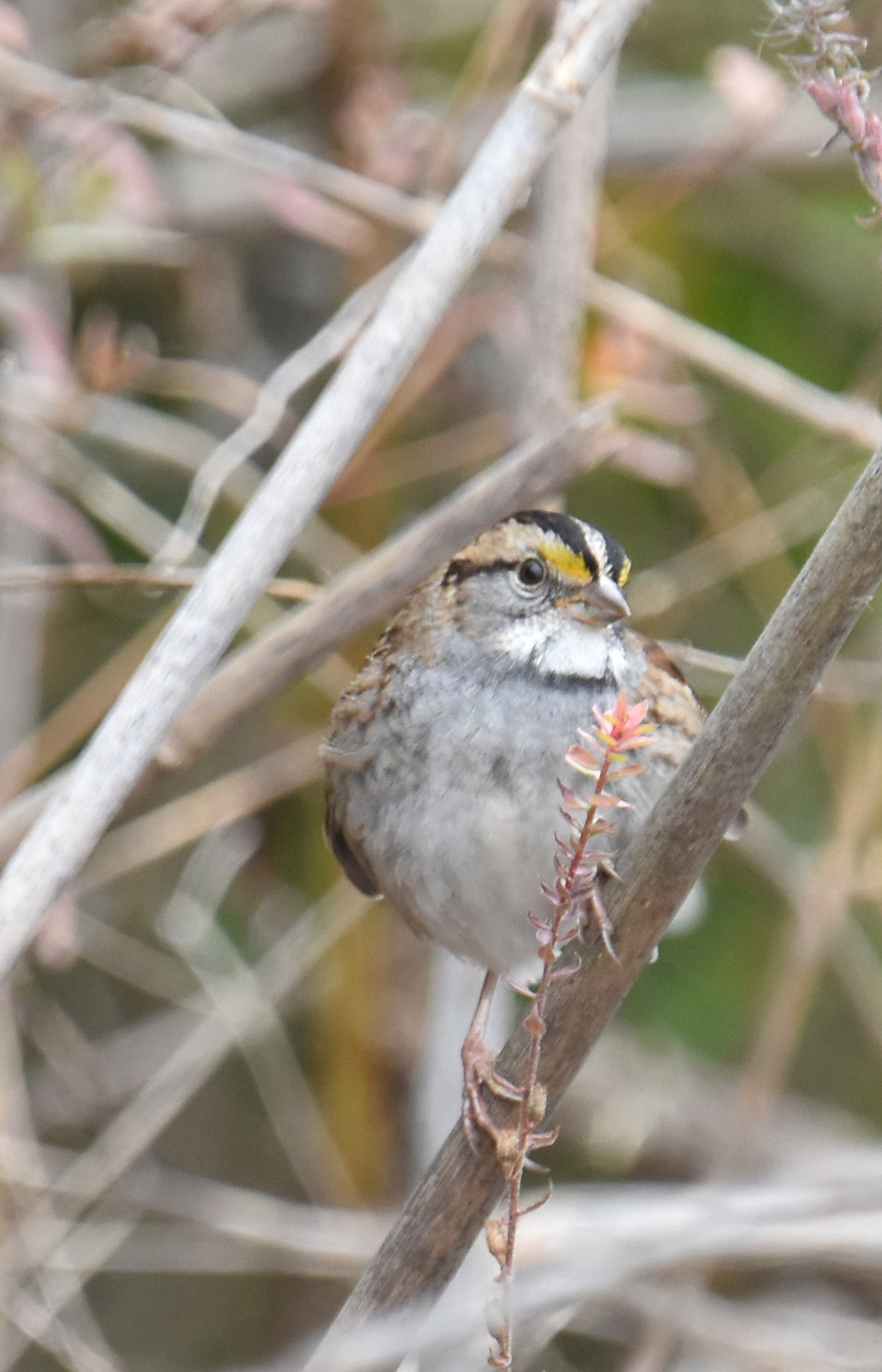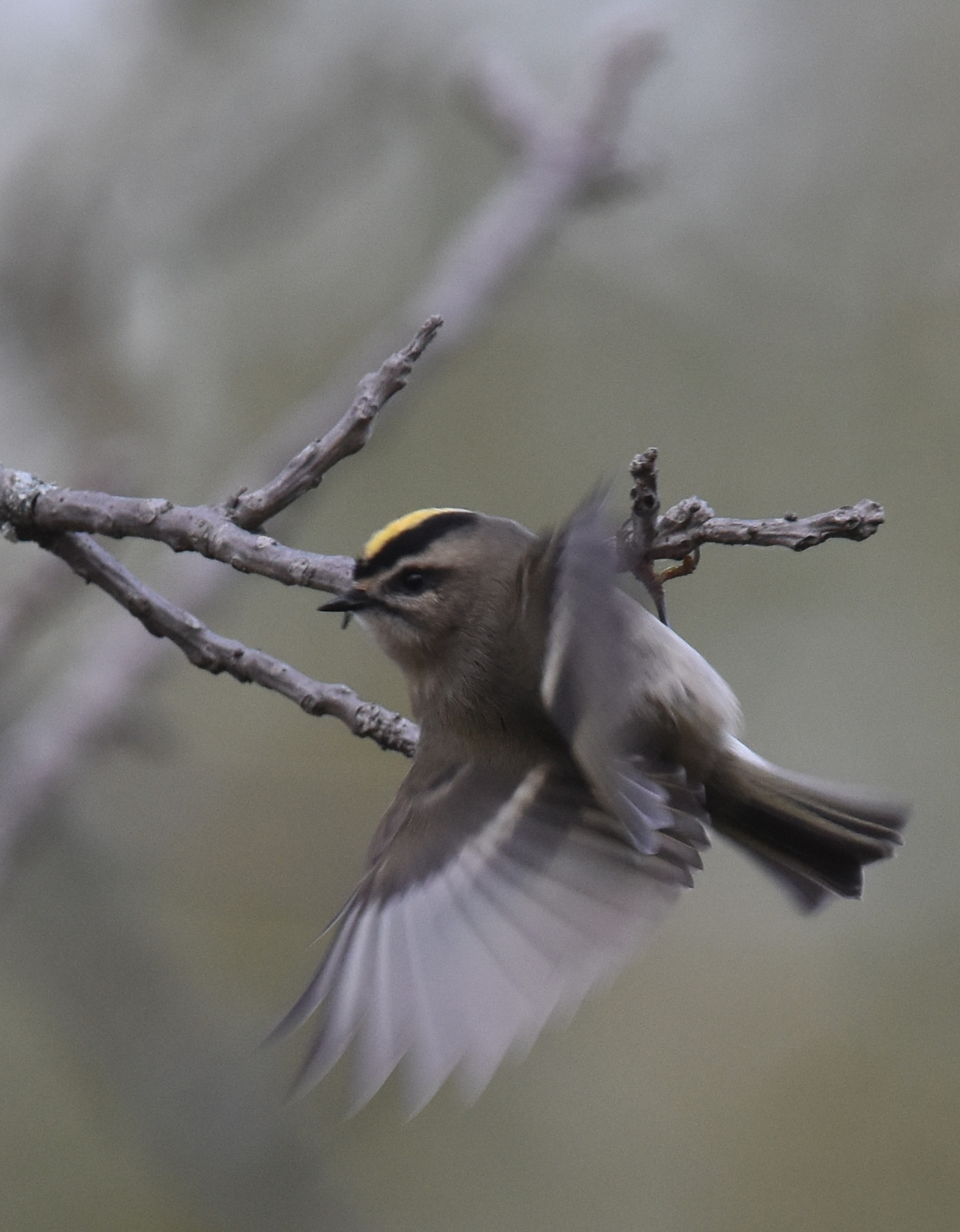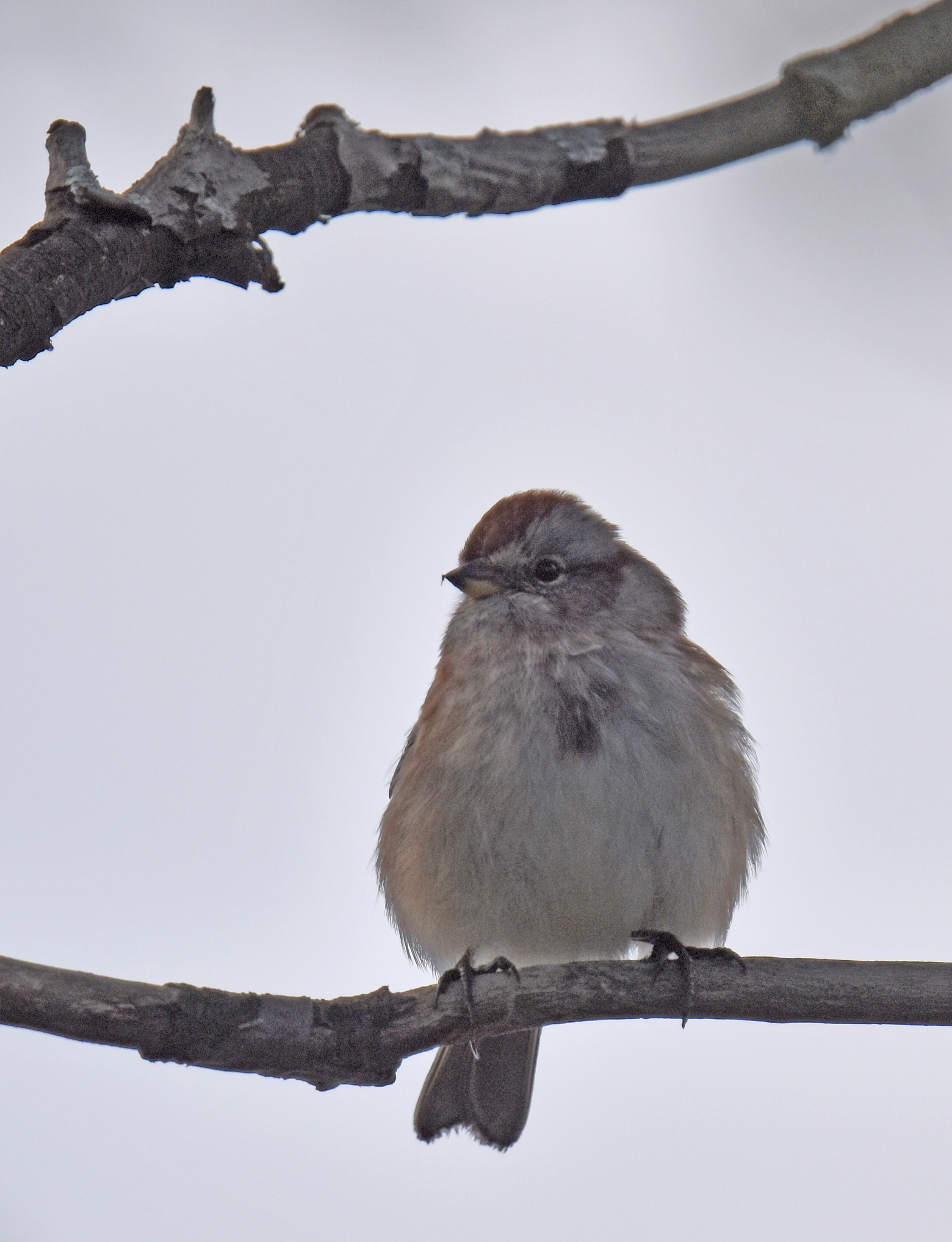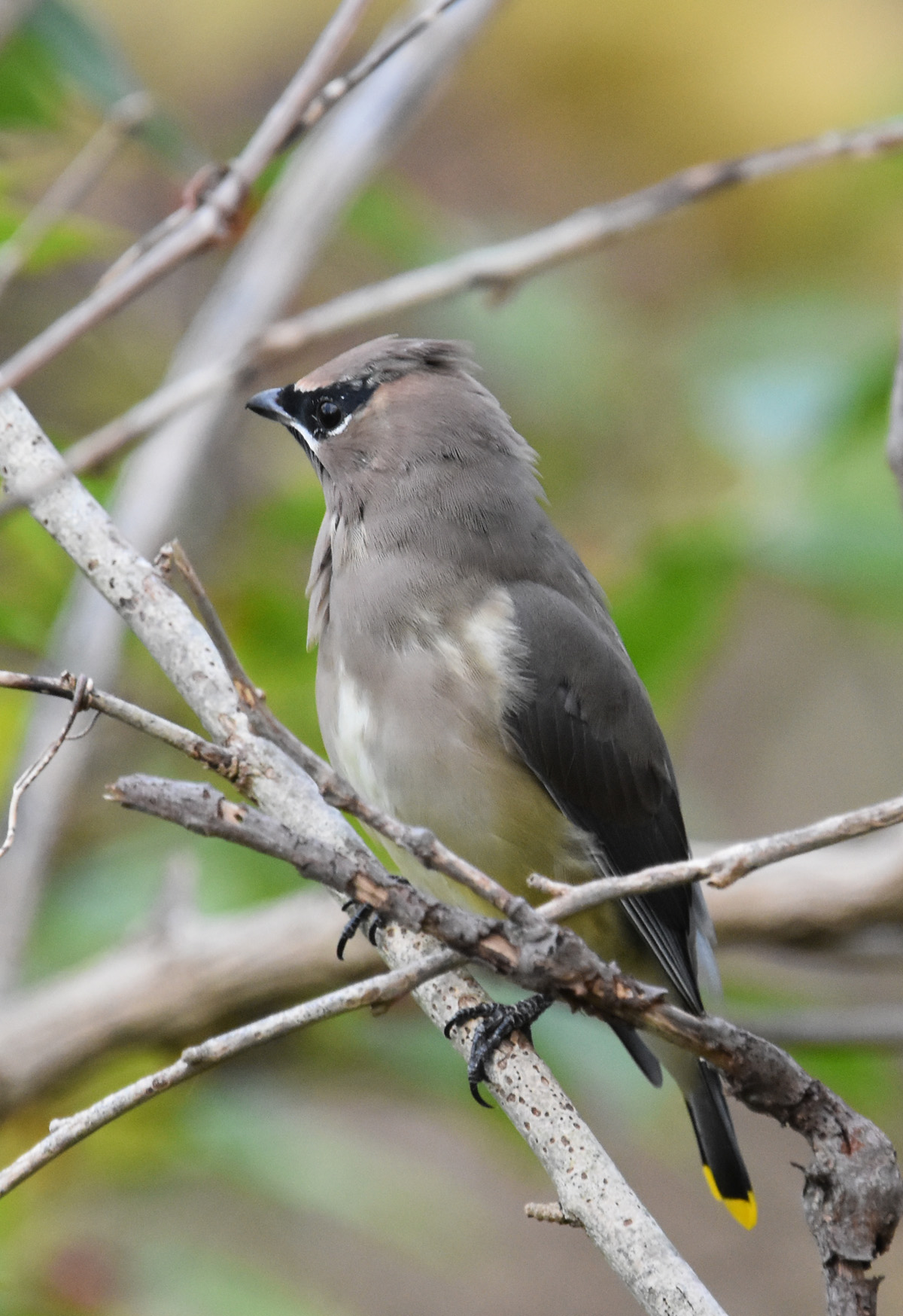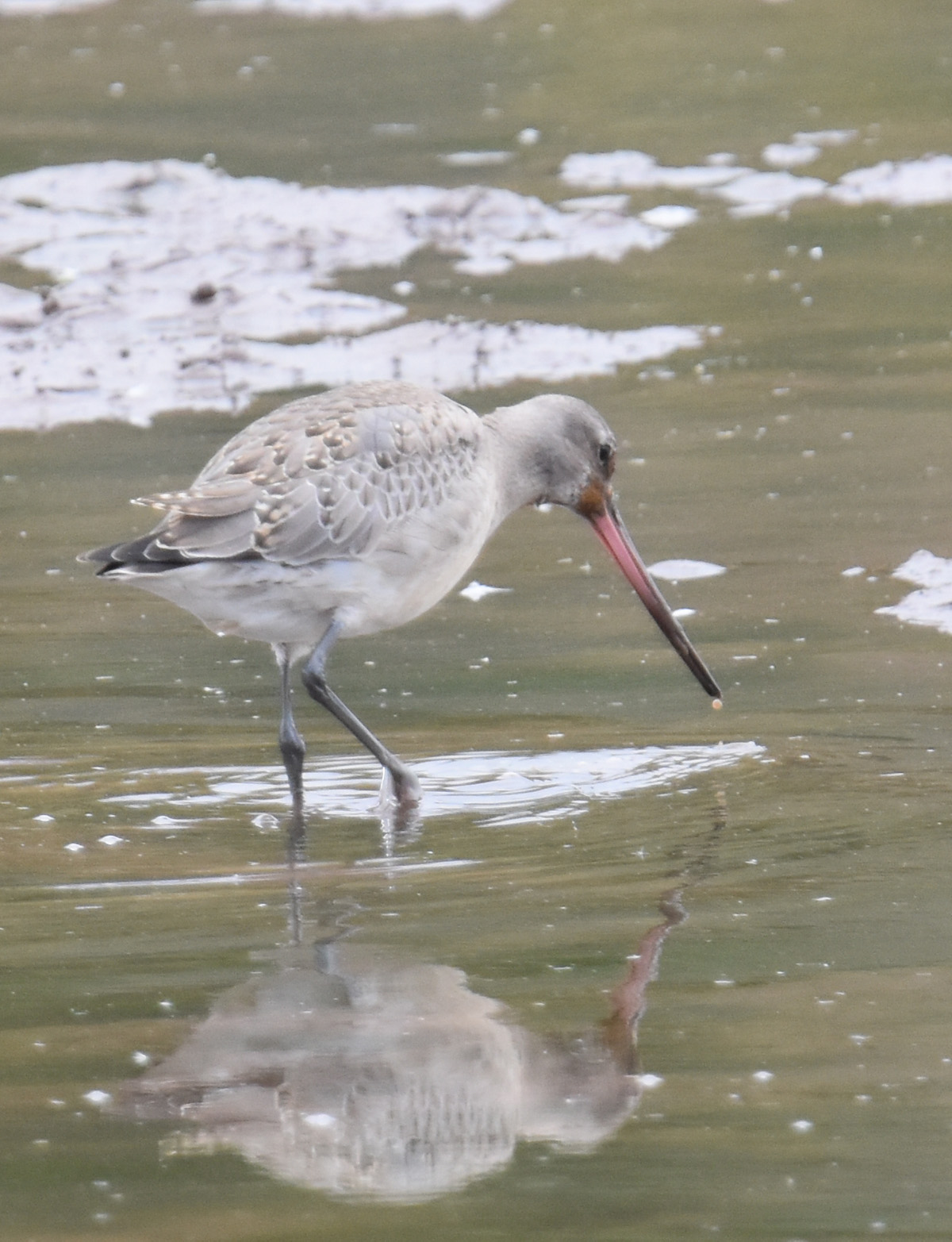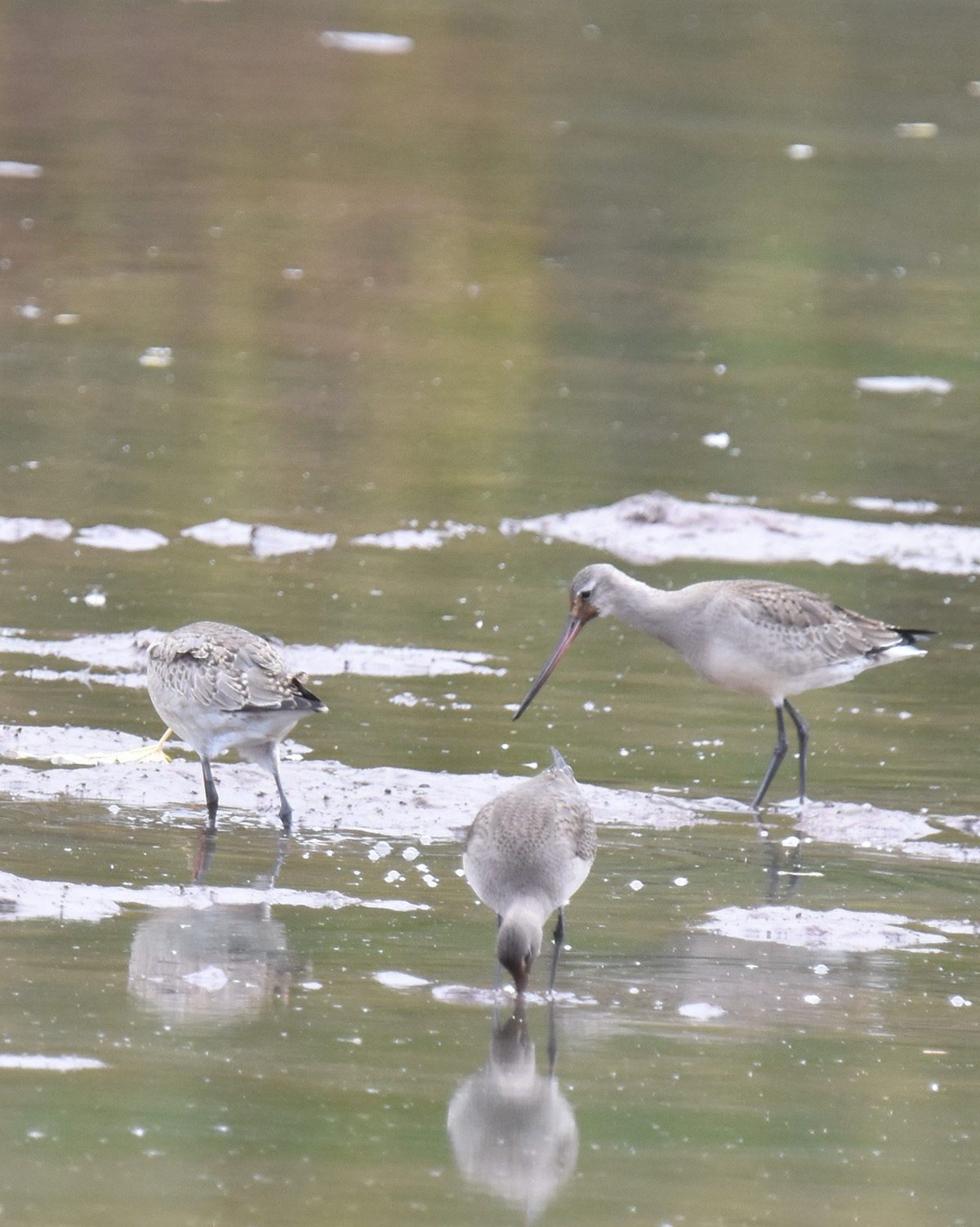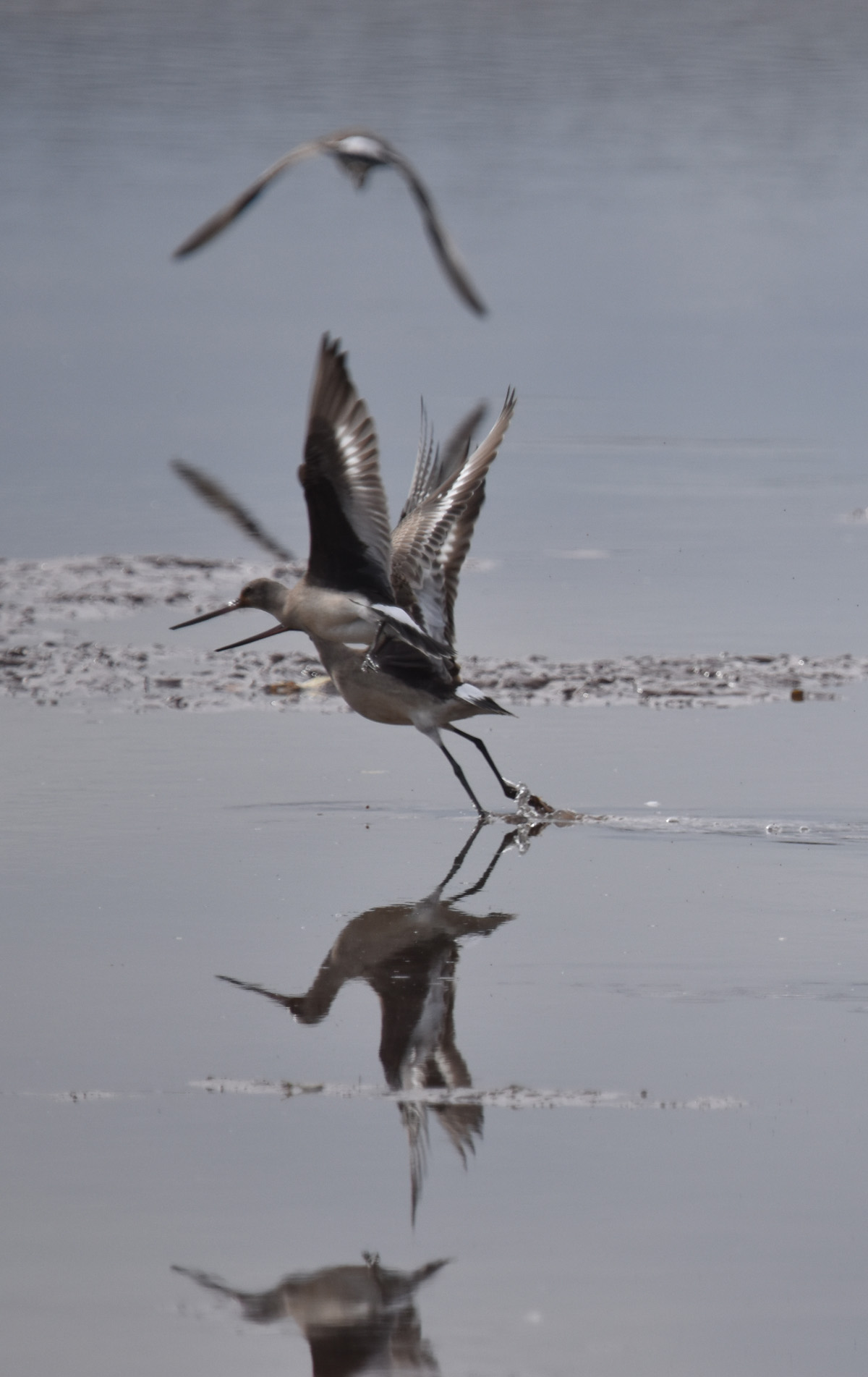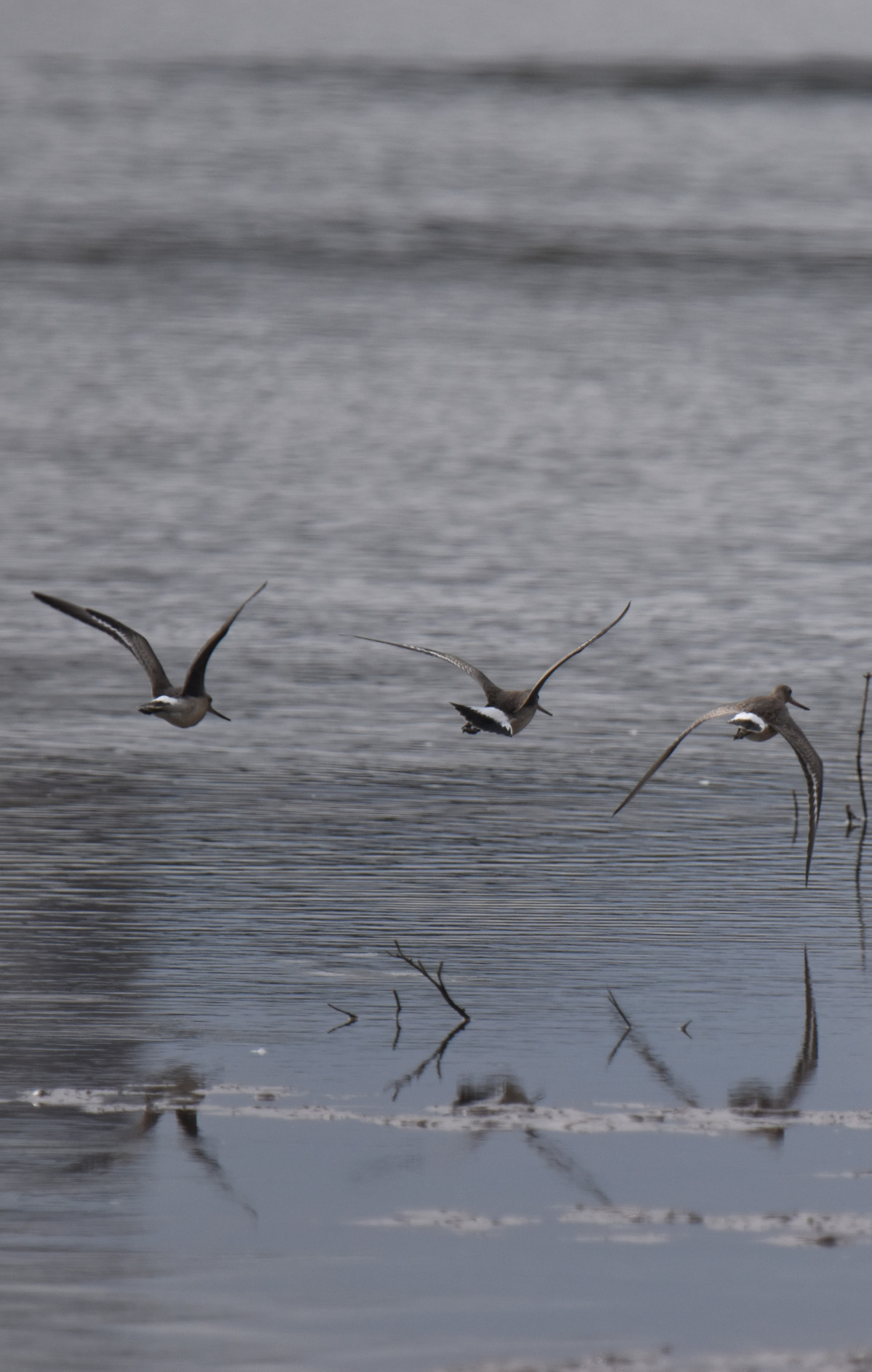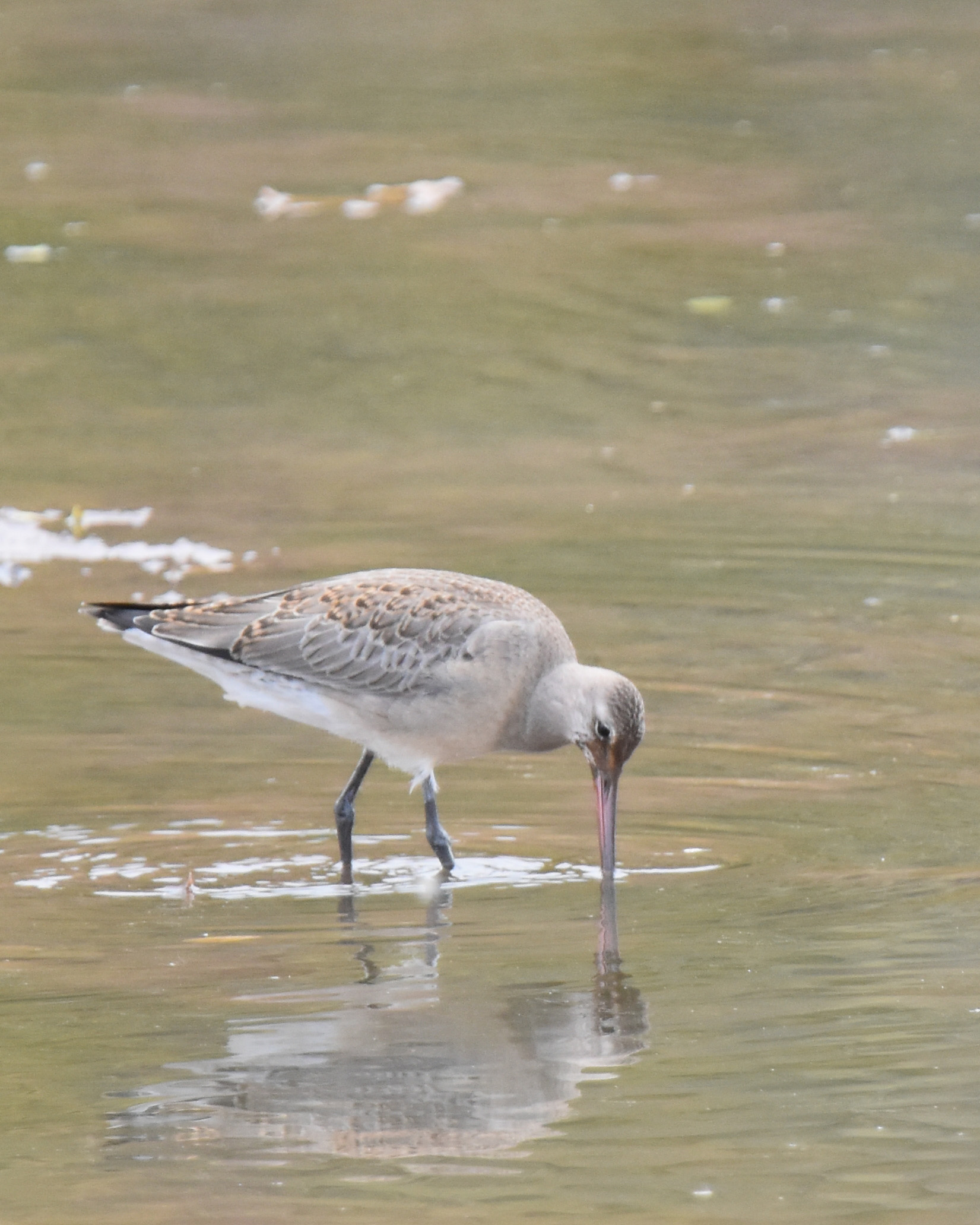As October slid into the home stretch, I kept reading reports online that a group of five tall, long-billed shorebirds was gracing the mud flats near the Royal Botanical Garden headquarters in Burlington, Ontario. Finally, on a day that was only occasionally raining, I raced out to try to spot this uncommon flock of Hudsonian Godwits. While waiting for them to fly in to greet their hordes of admirers, I took a ramble around the Valley Inn eBird hotspot watching the shenanigans of the other less-vaunted birds.
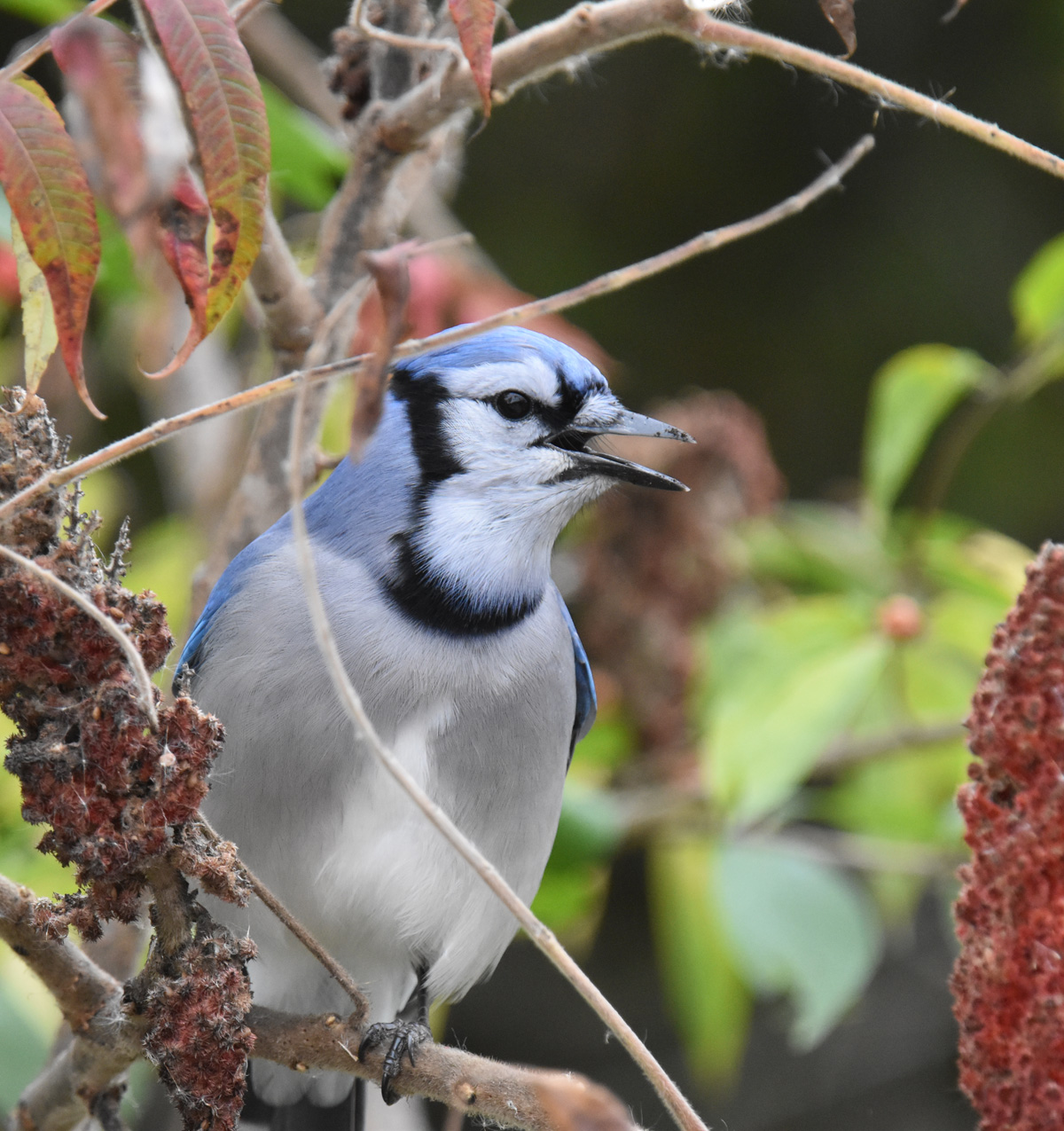 A noisy group of Blue Jays braved the light rain to retrieve sunflower seeds spread on a rock beside the path.
A noisy group of Blue Jays braved the light rain to retrieve sunflower seeds spread on a rock beside the path.
Whose Swimming at Valley Inn?
A family of Trumpeter Swans bugled their arrival and then serenely sailed up the waterway past the phalanx of photographers, graciously ignoring the flutter of high-speed shutters like the best-bred royals always do.
What I first took to be resting Bufflehead upon closer inspection turned out to be a large group of Hooded Mergansers including 5 lovely males. I waited somewhat patiently to see if they would dare to come to my side of the pond….
While I waited, I slowly paced forward till I was very close to several Double-crested Cormorants.
Looking across the bay, I noticed a Great Blue Heron. Then another. Then a third. As I watched, a soap opera broadcast: One of the three kept partly opening its wings and charging aggressively at another. The charged bird would fly a few yards away but land and start fishing or frogging again. The aggressor would “bittern” standing with neck and head straight up, then would begin again to attack again, picking whichever heron was closest.
I couldn’t quite decide if the pushy Heron was a juvenile demanding free food or an adult annoyed to have others infringing on its favourite fishing hole.
Eventually two of the Herons gave up and flew across the pond–and one landed quite close to where I had been silently standing! It went down below a berm covered in Christmas trees, though. (Dead trees, that is. They are being used to help capture silt and possibly to increase habitat for small invertebrates, insects and fish.)
Another photographer joined me and pointed out a Bonaparte’s Gull that had been hanging out at the pond for several weeks. As he mentioned, it was a delicate gull, noticeably smaller than the Ring-billed Gulls nearby.
Suddenly at the far side of the pond, a flock of at least 13 small sandpipers flew, swerved, banked, veered again, then landed. The flight reminded me of the ocean-side flocks of Semi-Palmated Plovers.
I could barely see the birds on the far shore, having only my 600 mm lens and some compact binoculars. I wished some of the other photographers had joined me instead of waiting on the opposite side of the bridge looking at the still-distant Godwits. With their spotting scopes and super-high-magnification lenses, they would have known instantly what these smaller birds were.
Luckily with my variety of fuzzy photos, once home with the help of iNaturalist and the internet I identified these as Pectoral Sandpipers. They were certainly an unexpected and much welcome surprise on a drizzle-filled day.
As the first drops of a new rain shower started to fall, the nearby Great Blue Heron climbed up on top of the berm. It was too close to easily fit in a single photo !
The male Hooded Mergansers, though, came no closer than half-way across the pond.
Birds Were Dripping from the Trees
Well, it was probably just rain, actually, dripping from the branches, but I did see several types of migrants in the shrubs and trees around the shore.
This White-throated Sparrow was one of a flock.
The Golden-crowned Kinglets didn’t really perch much but they enjoyed catching insects from the tips of twigs.
This is one of the few American Tree Sparrows I’ve seen actually in a tree.
A flock of young Cedar Waxwings kept snatching fruit from Honeysuckle and Dogwood bushes before chasing each other around the tree tops.
A Flight of Five Hudsonian Godwits
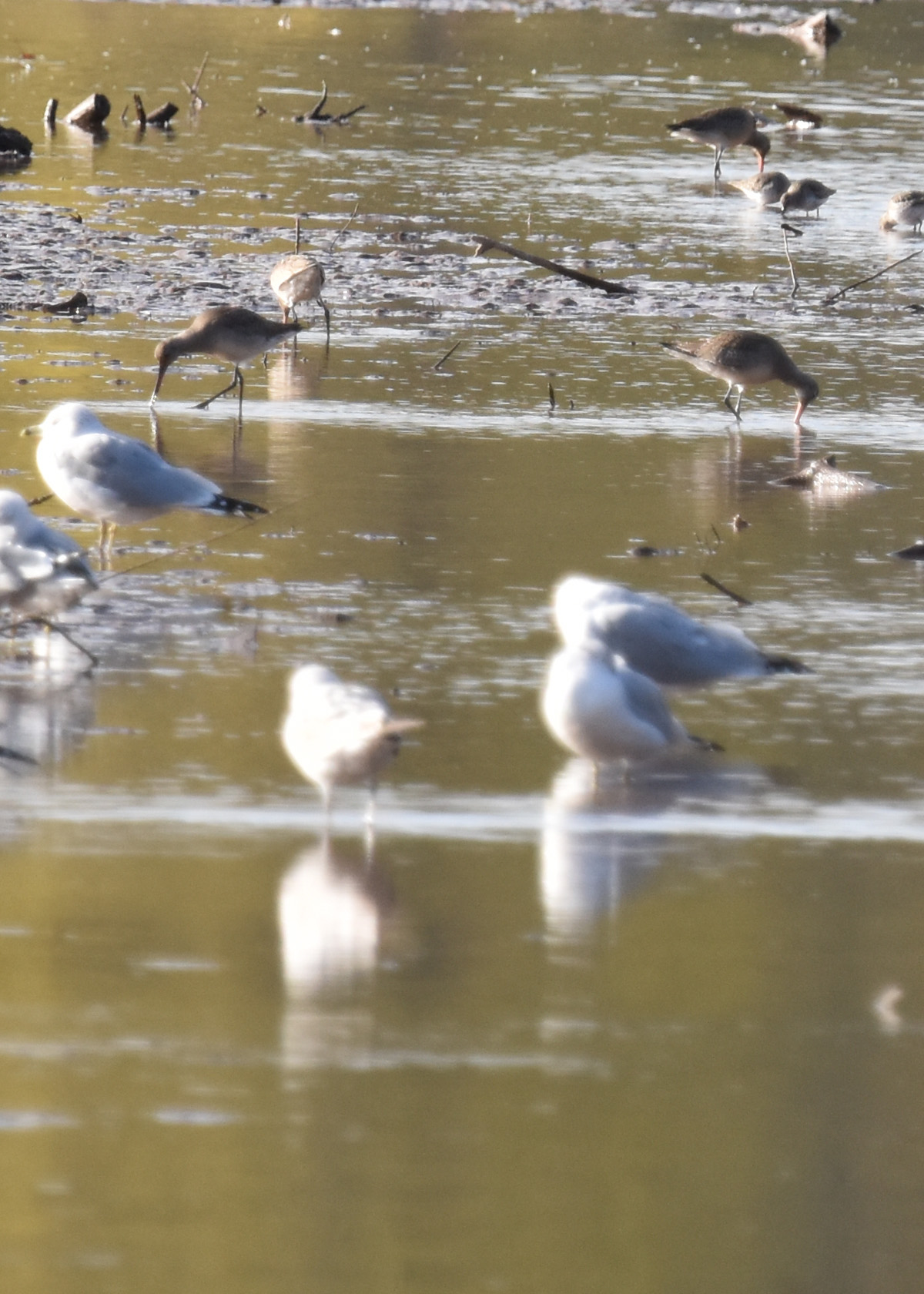
When I first arrived, the Hudsonian Godwits were feeding with 5 Dunlin way up the bay. This photo at least shows you their size relative to the ever-common Ring-billed Gulls. (Those are the gulls one often sees standing in parking lots outside restaurants hoping for free fries.)
After a heavier shower, my hands were starting to complain even with mittens on. I wondered if I should retreat to my car. I crossed to the Lake side of the pedestrian bridge again.
And then there they were, up close and personal, a group of five Hudsonian Godwits busily poking and prodding through the mud for food.
One thing I quite liked about these winter-plumaged birds is the underside of their long bills were noticeably pink. It was so cheerful looking on a grey, wet cold day.
They worked almost non-stop checking through the mud for things to eat. They would often plunge their bills deep into the muck, which is probably why they could feed beside the shorter-billed Dunlin without any resentment: each was hunting in a slightly different zone.
Then something spooked them: a Peregrine, a person, who knows?
Or maybe the food was just more plentiful further up the bay. Either way, they flew a few dozen metres further away, then landed and started hunting again.
I was happy I had waited for them to pay a visit, though. They are quite handsome birds even in their “off season” plumage.
Maybe I’ll have a chance to seem some again next fall!
Related Reading
Join In
Did you ever see any interesting birds, like the Pectorals I found by accident today, while waiting for an expected one? Please share your experience with a comment.

